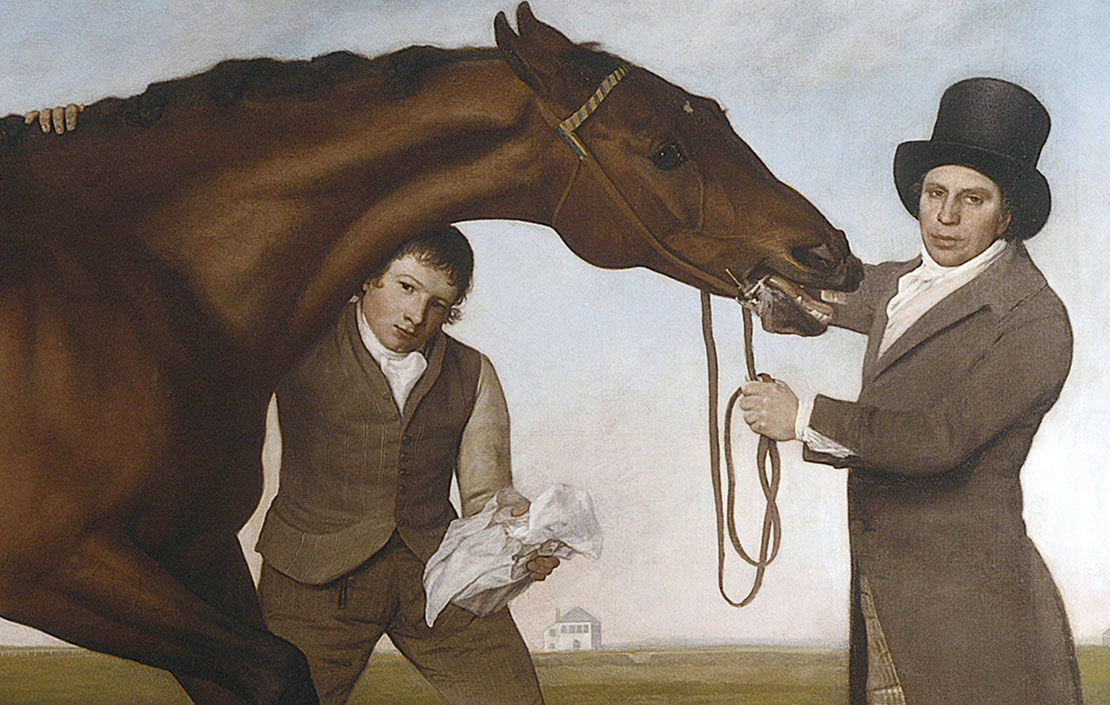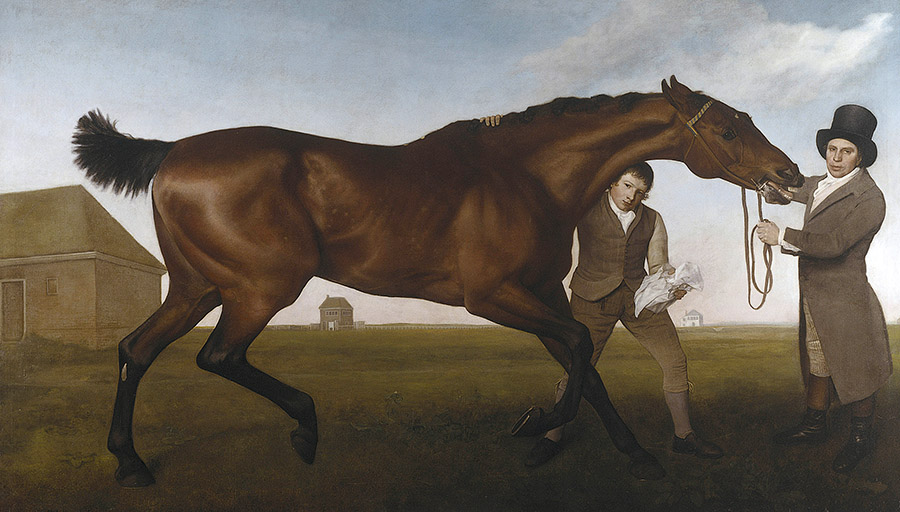My Favourite Painting: Hilary McGrady
Hilary McGrady, director-general of the National Trust, chooses a painting she first encountered in childhood.



Hilary McGrady on Hambletonian
When I was growing up in Northern Ireland during the Troubles, real art was a rare thing. I loved art in all its forms as a child and I studied art history at school. Our teacher took us to the National Trust’s Mount Stewart and what I remember most vividly is Hambletonian, hanging atop the beautiful entrance staircase.
I had seen it in my textbooks, but it was only when it was brought to life that I truly appreciated its depth and power. To this day, it remains one of my favourite paintings.
Hilary McGrady is director-general of the National Trust
John McEwen comments on Hambletonian
The Tate’s 1984 Stubbs exhibition was curated by the late Judy Egerton, a feisty and always lamented scholar, then assistant keeper of the British Collection. She opened her catalogue introduction with Josiah Wedgwood’s complaint ‘I can scarcely make anybody believe that he ever attempted a human figure’ and her chief aim was to show what ‘a perceptive observer of human beings’ Stubbs was.
A ‘master of the art of class distinction’, he was no moralist in Hogarth’s tradition. Servants are portrayed without condescension: they ‘take pride in what they do, but they make no statements either of the Puritan ethic of work or of the Leveller tradition of equality’.
It was an attitude that reflected that horse racing was ‘perhaps the greatest force for democracy in Georgian England’. The catalogue cover was a detail of Hambletonian’s groom and the trainer Thomas Fields.
This life-size masterpiece was painted for the Durham baronet Sir Henry Vane-Tempest when Stubbs was 75. The Newmarket match race over four miles between the North’s Hambletonian, St Leger winner, and the South’s Diamond, Newmarket champion, attracted ‘the greatest concourse ever seen’ at the home of horse racing.
Exquisite houses, the beauty of Nature, and how to get the most from your life, straight to your inbox.
Hambletonian, a grandson of Eclipse, won by half a neck. Another painting, uncompleted due to a dispute over payment for the first commission, would have shown the finish, with jockey Frank Buckle in Vane-Tempest silks.
Egerton disagreed with Basil Taylor, the pioneer Stubbs scholar, that his hero was, with Leonardo, ‘the greatest painter-scientist in the history of art’. She saw Stubbs’s famed study of equine anatomy and his scientific interest in pigments and print methods as a means to achieve greater reality and to help his work’s longevity.
Country Life is unlike any other magazine: the only glossy weekly on the newsstand and the only magazine that has been guest-edited by His Majesty The King not once, but twice. It is a celebration of modern rural life and all its diverse joys and pleasures — that was first published in Queen Victoria's Diamond Jubilee year. Our eclectic mixture of witty and informative content — from the most up-to-date property news and commentary and a coveted glimpse inside some of the UK's best houses and gardens, to gardening, the arts and interior design, written by experts in their field — still cannot be found in print or online, anywhere else.
